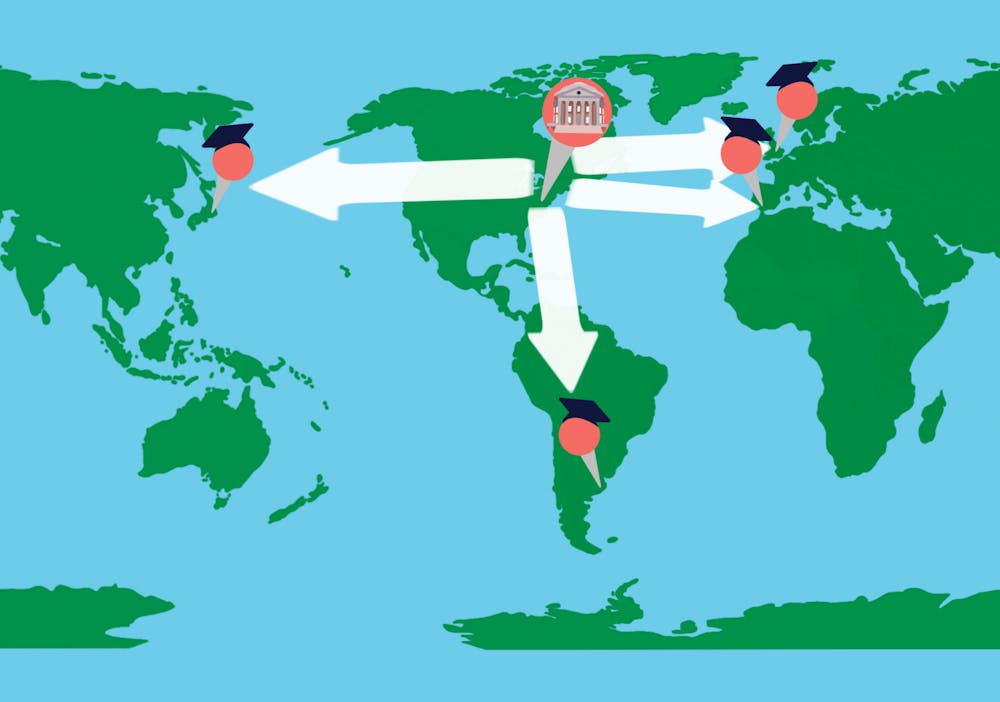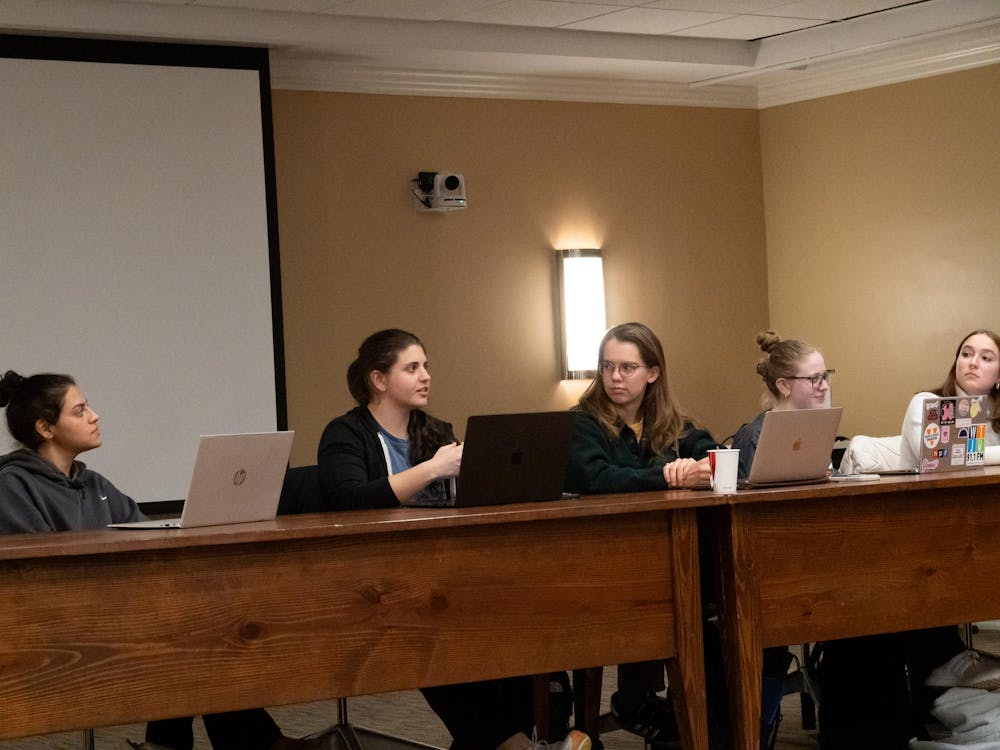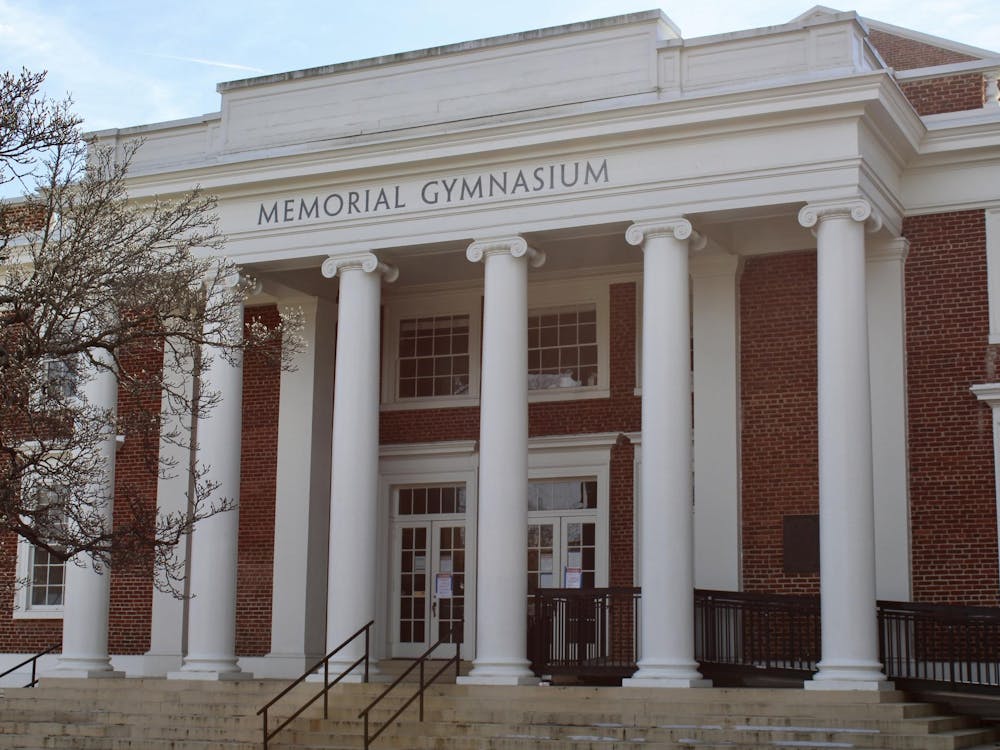Summer study abroad programs, which provide students with opportunities to visit different countries and partake in exciting experiences while learning important skills, have recently become available for University students for the first time since the COVID-19 pandemic halted operations in 2020.
This summer, 1204 University students will travel outside of the country to study abroad. The number of students studying abroad has increased significantly since 2020, when only two students went abroad, and 2021 when 103 students left the country. Still, the number of students traveling abroad has not yet hit pre-pandemic levels, as the summer of 2019 saw 1862 students travel abroad. 22 programs will be offered directly through the University this summer.
For the 103 students who traveled abroad in 2021, the impact of COVID-19 was very pronounced. Third-year College student Alexandra Shaul, who did archeological research in Greece in the summer of 2021, said the pandemic made the process of accessing study abroad experiences difficult.
“Because I was going to a zone that was more COVID restrictive — according to the United States and the CDC — I had to go through more hoops,” Shaul said. “Even though I was vaccinated or had my vaccine card, I still had to get PCR tests before going — and then also leaving Greece I had to get a test coming into the United States.”
Shaul accessed her study abroad experience through College Year in Athens’ Excavating the Aegean program. CYA is a non-profit education abroad program that aims to provide a cultural bridge between the United States and Greece and enable English-speaking undergraduates to study in Greece. The program that Shaul participated in allows students to excavate a sanctuary in Despotiko while learning about methods and theory in archeology.
Shaul found that the application process to gain approval from the University’s Education Abroad Office — a division of the International Studies Office — was an extensive process that took her a few months to complete. Because her departure was scheduled just before the June 1 date when COVID-19 travel restrictions were lifted in many countries, Shaul also had to acquire special approval to leave.
Although some restrictions remain — like Austria and Belgium, which require travelers to present proof of vaccination or recovery from a COVID-19 infection — over 1,000 students have successfully traveled abroad since June 2021, when the University first began allowing students to study abroad after limitations due to COVID-19 severely limited international travel.
When planning their travels, students must consider the COVID-19 levels in the country they plan to visit while also being aware of the program's protocols for what to do in the event of an infection. According to Doane Dudley, director of the International Studies Office, some destinations remain unavailable to students and other countries’ restrictions regarding travel are subject to change.
“Student travel plans remain subject to more extensive review than pre-pandemic, and students complete several additional steps pre-departure to make sure they understand local operating conditions, know entry and exit requirements, and understand operating conditions may change and what to do in the event of a change,” Dudley said in an email statement to The Cavalier Daily.
The International Studies Office recommends all students to be fully vaccinated prior to departure, adding they should be aware that the University will not reimburse students for a canceled trip. Further, students who want to participate in international programs not affiliated with the University must be approved by the University as well as their desired program.
Second-year Education student Paige Handy will be traveling abroad to France through the French Department’s Summer Program in Lyon, which allows students to enroll in two French courses over the five-week program.
While in Lyon, students will not only engage in classroom experience, but must also agree to speak in French when interacting with locals. Handy expressed excitement for this feature of the program, as it pushes students to engage with the French language and culture.
“I'm also just really excited to be independent and have that, literally, living-learning experience of being on my own someplace having to learn and navigate a new culture while also pushing myself outside of my comfort zone to get better in French,” Handy said.
Handy said that she remains cautious about COVID-19, and is making an effort to wear a mask and stay away from the public as her departure date nears, citing concerns about contracting the virus when she is scheduled to leave. She also reported feeling mixed emotions about being part of the first group of students going on study abroad trips since the pandemic.
“It's exciting, but also intimidating to be the first new class venturing out there in this uncertain world now.” Handy said.
For some other students traveling over the summer, COVID-19 was not a big concern as they planned their travels.
First-year College student Asher Creskoff plans to travel abroad to Seville, Spain this June to study Spanish.
“It was definitely an optimistic time in regards to COVID, so I think that that wasn't one of my main concerns when going through it with my advisor.” Creskoff said.
Creskoff will be traveling through the Spanish Studies Abroad Program, one of many external study abroad programs approved by the University. The program allows students to study in Spanish-speaking countries while learning the Spanish language intensively through classroom environments and interactions with the student’s host family.
While Creskoff did not see COVID-19 as a major concern of his while researching study abroad programs, it was still a consideration during his preparations. Within the paperwork that he was asked to complete prior to departure, he made sure to consider the epidemiological conditions in Spain and had to report his program’s protocol in case he became sick while abroad.
For Creskoff, who will be staying with a host family in Seville and taking a Spanish language class for transfer credit, his primary goal was to acquire transfer credit and take advantage of the opportunity provided by the University.
“I always had this vision of wanting to study abroad while I was in college to take advantage of some interesting and informative programs that the college offered,” Creskoff said.
Regardless of the COVID-19 precautions that remain, Creskoff is excited for the possibilities afforded to him through the study abroad program.
“This program is very exciting because it allows you to be paired up with a local student who is at the University of Seville there and then I'm staying with a host family, which should be really exciting and a really informative and interesting experience,” Creskoff said.
For these students, study abroad offers exciting opportunities to learn new languages and skills, meet new people and explore different countries. Despite the challenges and long processes prior to departure, study abroad opportunities allow students to enhance their college experience.
“I had an amazing time and I would recommend anyone to study abroad if they have an interest in it. It sounds cliche, but it's kind of a life changing experience.” Shaul said.






